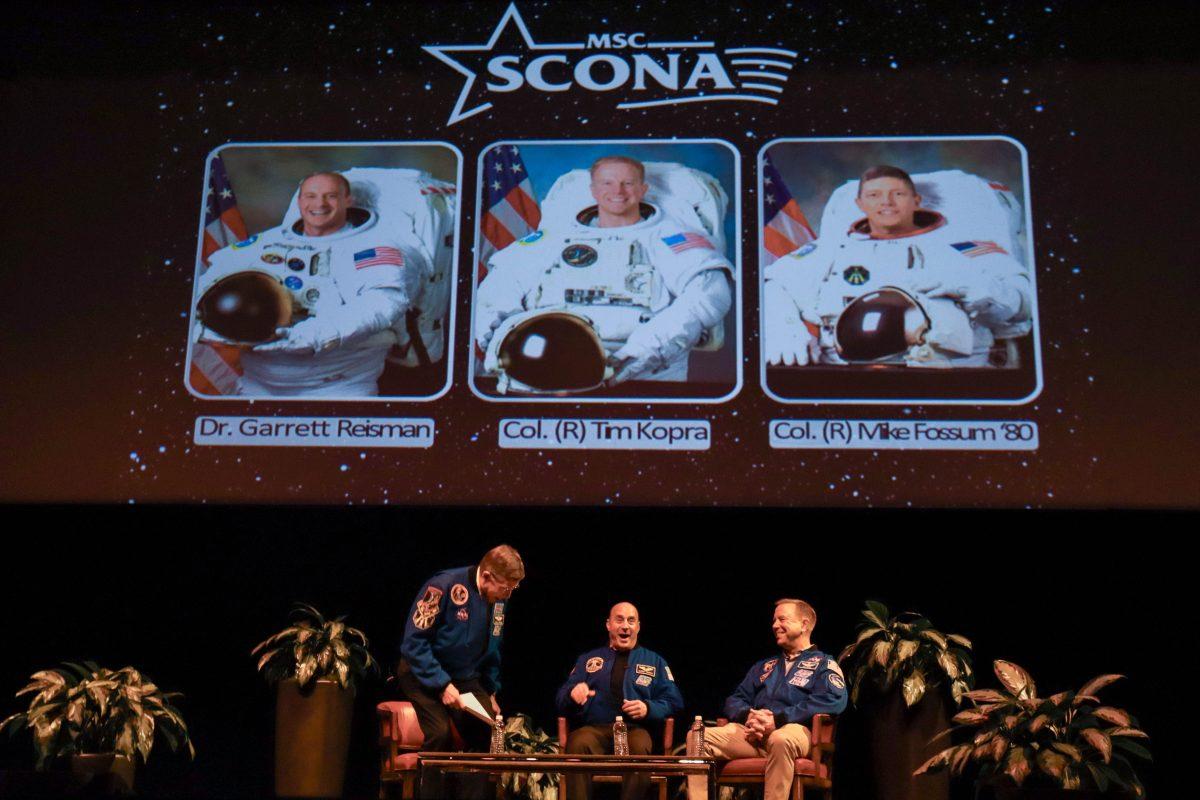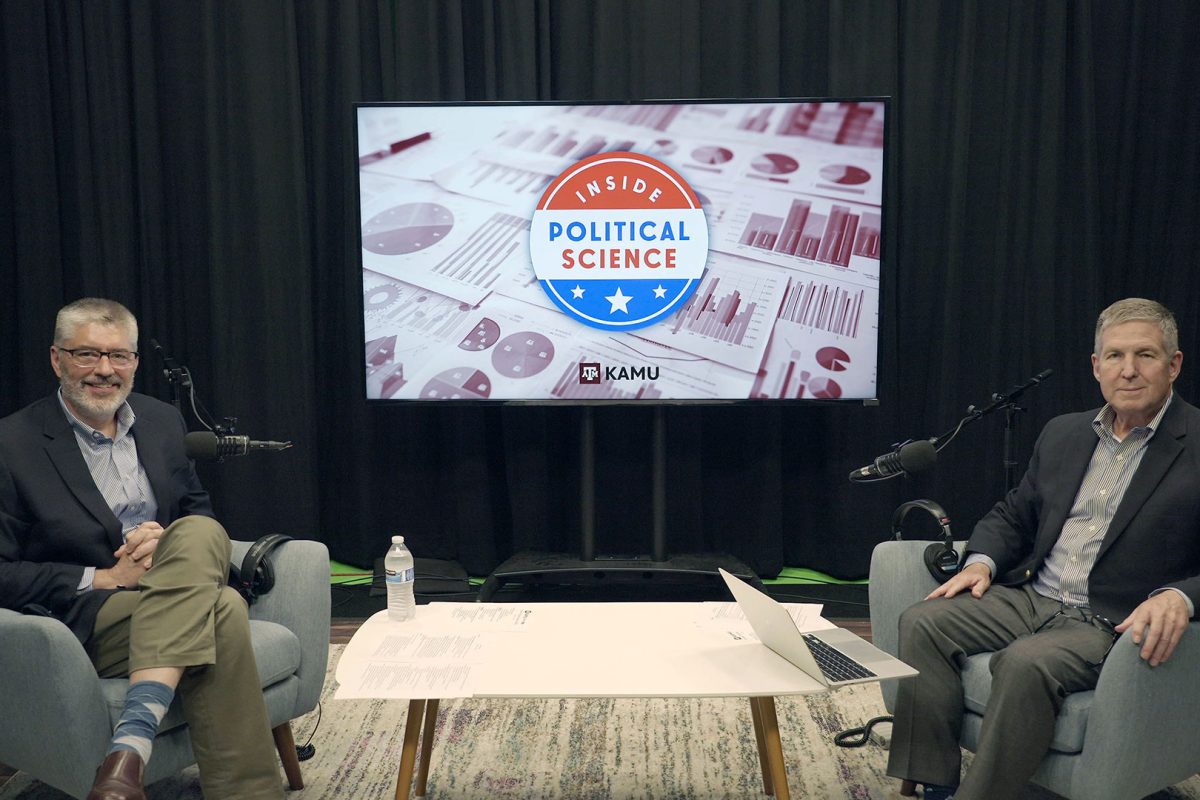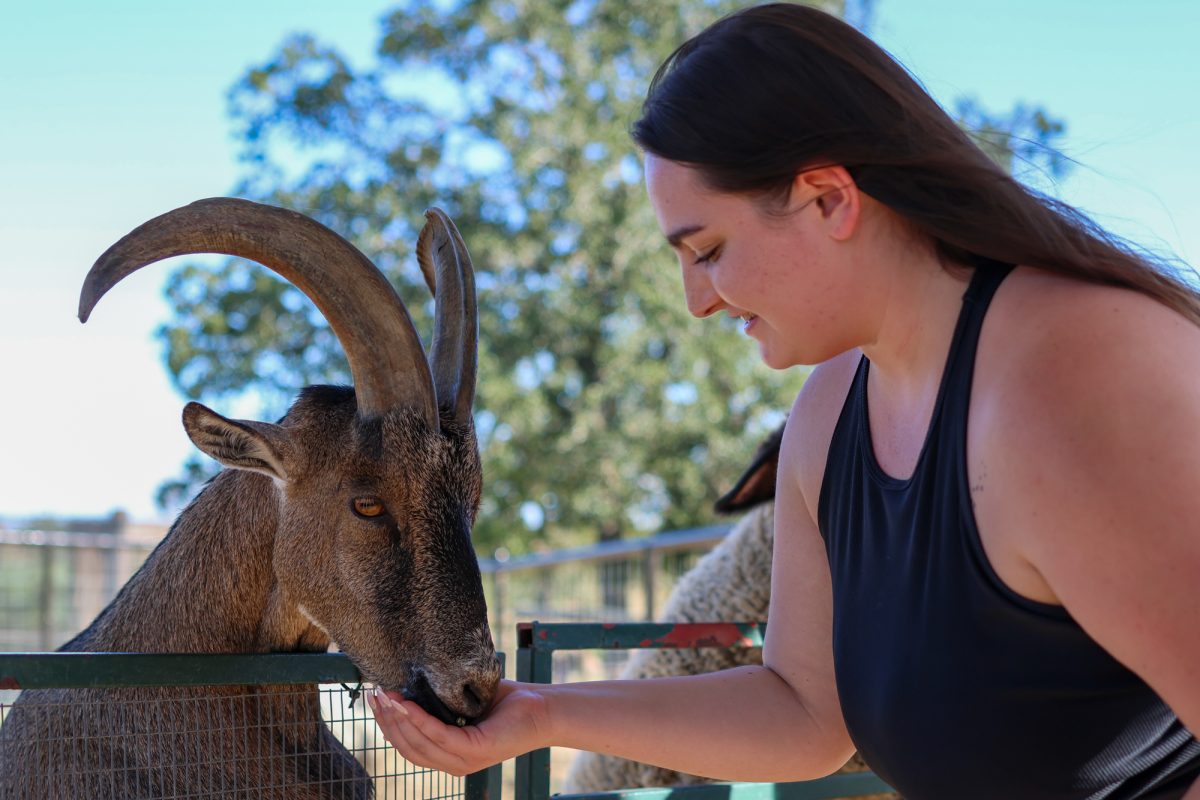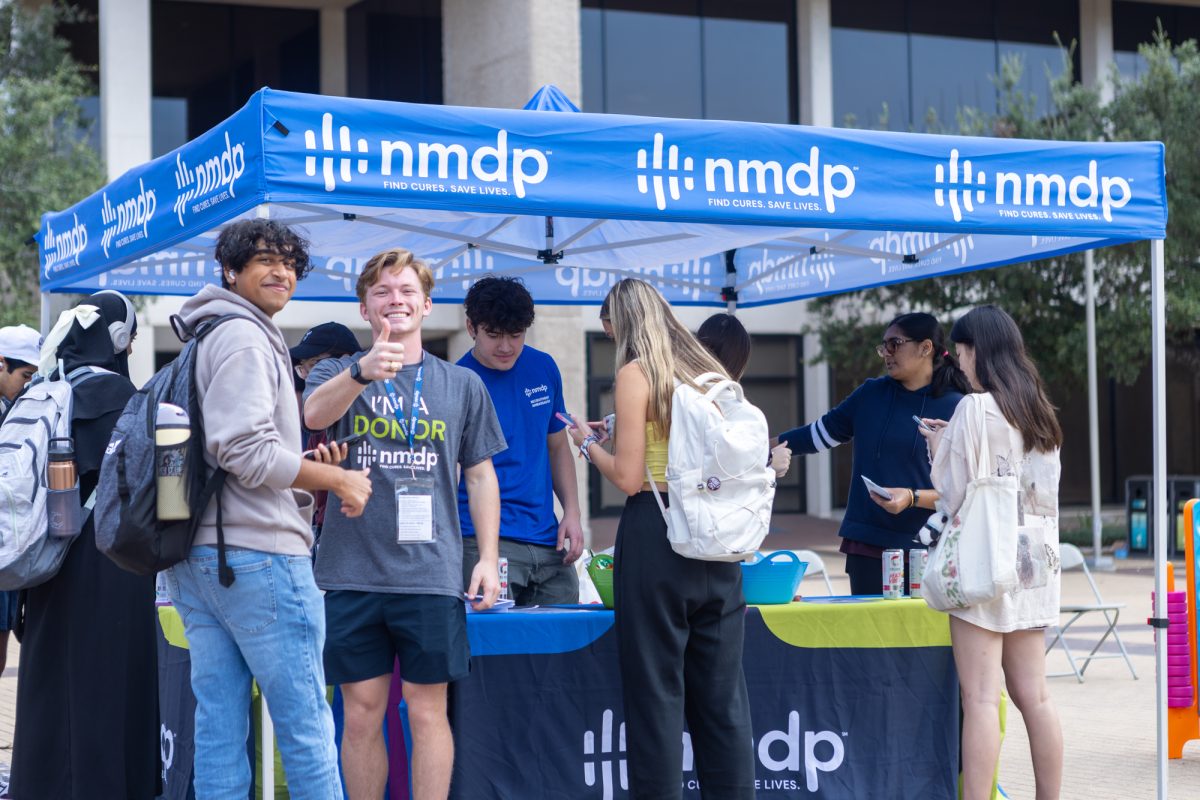Editor’s Note: This article has been updated to correct a spelling mistake.
International affairs have exceeded our global sphere and now take on a new frontier: space. On Thursday, Oct. 26, the MSC Student Conference on National Affairs, or MSC SCONA, hosted a panel of former astronauts for their fall program, The Next Step: America’s New Space Age, to discuss the opportunities and implications of space exploration on a global scale.
MSC SCONA Chair and international studies senior Ethan Finney welcomed the audience and introduced the trio of astronauts at 7 p.m. to hundreds gathered in Rudder Auditorium. The panel included a senior advisor at SpaceX, Garrett Reisman, PhD., CEO of Nanoracks LLC, COL Tim Kopra, USA (Ret.) and Vice President of Texas A&M and COO of Texas A&M Galveston, COL Mike Fossum, USAF (Ret.), Class of 1980. Together, the former astronauts have logged over 400 days in space combined.
Fossum is the first and only Aggie to go to space and served as moderator for the evening discussion. The former astronauts jumpstarted the evening with their favorite astronaut stories. Fossum said his favorite memory is an interaction with former U.S. President George W. Bush the day before returning home from a space walk in 2006.
“So [the president] is talking to us and he’s there [saying], ‘Congratulations,’” Fossum said. “We’re all crowded around and all that kind of rah-rah stuff. Suddenly he says, ‘So I understand you got a Texas homeboy on board, a genuine Texas Ag. My goodness. How in the world is that going?’ Are you kidding me? You know, we’ve been doing all these things, we’re all up here and I’m taking crap from the President of the United States.”
Fossum asked next why each of them decided to stop flying. Reisman said he made his choice 13 years ago, around the time of his last mission with NASA, STS-132. On a day off, he had the opportunity to observe SpaceX and their transformation of an old Titan launchpad into a new launchpad for a Falcon 9 Rocket, Reisman said.
“This wasn’t just a couple of hobbyists; this was real rocketry,” Reisman said. “That was my first insight into what was happening in the private sector. I investigated it further and I saw that there was potential. It could have all fizzled out. It was an experiment that might not have worked, but in the private sector, there’s this potential for the next giant leap … really shoot us up the terrible technological advancement. I wanted to be a part of that.”
Kopra said he pursued an MBA from both the London Business School and Columbia Business school after incurring an injury and potentially not being able to fly again. One of Kopra’s colleagues started a venture fund and he decided to join him.
“[It] sounds cool and sexy, you venture,” Kopra said. “It actually was really fun because it’s like a really raw, free market. You find other people that you persuade that you can handle their money better than they can, and you find small companies to invest in and help them grow.”
Unlike the two men, Fossum said he didn’t want to stop being an astronaut. However, a colleague recommended Fossum to apply for the A&M Vice President role that runs TAMU Galveston after the previous VP retired. His Aggie wife encouraged him to apply and inspired him to take on a new challenge and make a difference in a different way, Fossum said.
“I think that’s what we’re all striving for,” Fossum said. “I get to help people like this right here, achieve their grades, because I believe in them. I believe in Texas A&M University. I know the power of this school to light people up and get them ready to do great things. I absolutely love it.”
Fossum said what lies before him is the next step for human space flight.
“I really want to get into what’s next for human space flight because we’re really looking at the future here,” Fossum said. “We are the past. You guys are — in a big way — the future.”
Fossum then questioned the difference between NASA and SpaceX, or the public sector versus private sector. From his experience, Reisman said the difference comes largely from the pace of decision-making.
“At NASA, wrong decisions are extremely painful because to make a change is extremely expensive,” Resimann said. “You have the government, your prime contractor, subcontractors and suppliers and there’s all these agreements that are put in place. But in SpaceX, we’re vertically integrated, so we built about 70% of both the rocket and spacecraft in house … that allowed you to turn on a dime. So … you know maybe that Falcon 8 rocket sounded like a good idea at the time, but a 9 would really be better. You can go, ‘Okay, Bob, hey, put another engine on that thing.’”
Reisman said the valuation of SpaceX has skyrocketed from $1 billion in 2011 to $150 billion today.
The panel also discussed Elon Musk’s goal to send humans to Mars, which Kopra said will likely not happen as fast as people think.
“In my mind, the biggest thing is about getting there fast,” Kopra said. “It helps with risk because the longer it takes to get there, the more [we are] exposed to radiation, the more chances for things to break or our bodies to go bad. So I don’t think that it makes a lot of sense to go to Mars until you can get there in 30, 60 days.”
This is currently not feasible, Kopra said, and an expedition to Mars would also take up all of our national resources.
“If we’re gonna go to Mars, we’re gonna basically shut down every other [space] program in order to pay for it,” Kopra said. “We have to figure out how to do this as expeditiously and as efficiently as possible with our national resources.”
The men wrapped up their discussion with the next potential space race influenced by current events. Kopra said Russia’s invasion of Ukraine, which lost the U.S. satellite contracts, and China’s own, unreachable space station have hurt the U.S. when it comes to establishing partnerships and keeping satellites in orbit.
Fossum said one last note on America’s role in international affairs and his faith in our nation to better itself on all fronts before the group answered audience questions.
“Willingness to accept risk, to go for the things that’s gonna change the world, we’re gonna see more of that,” Fossum said. “My fear is losing our position of strength in the world where the world is looking for us in leadership, in governance, in policy, politics and economics … And so I pray that we will figure out what’s important for us. For a nation, for rocket [and] space capability, but also in every arena, just recognize that the world’s a better place for the strong America because we really are the only real democracy there is that serves as that beacon of light and hope and as an example to other countries.”









